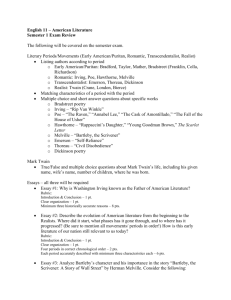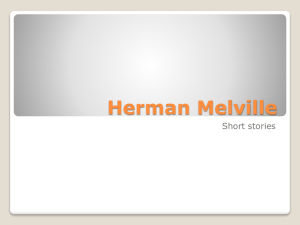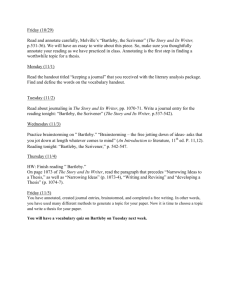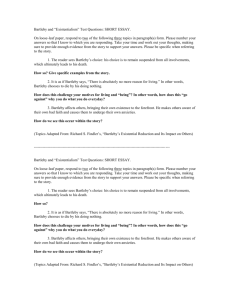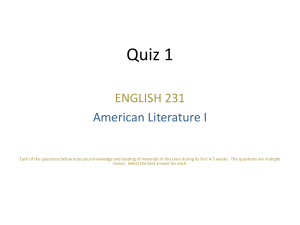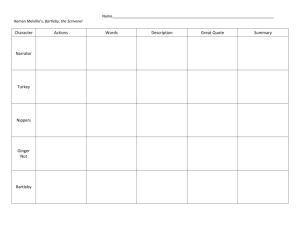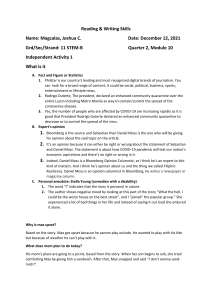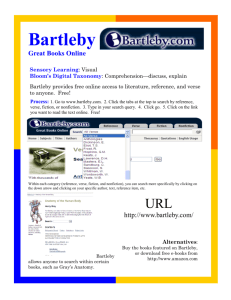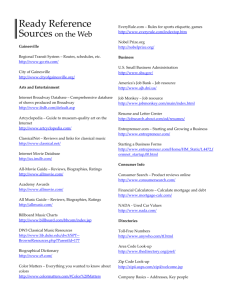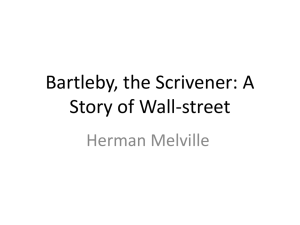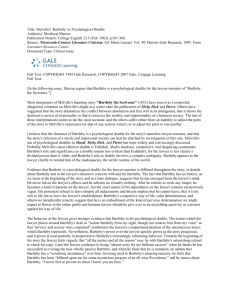English 11 – American Literature Semester 1 Exam Review The
advertisement
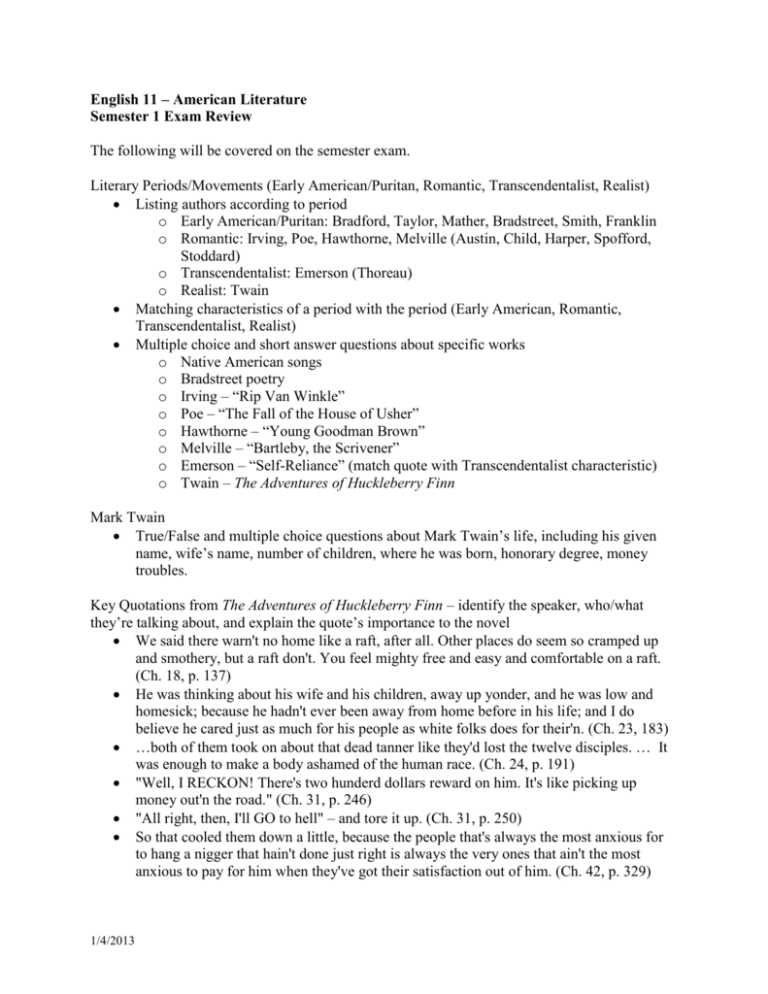
English 11 – American Literature Semester 1 Exam Review The following will be covered on the semester exam. Literary Periods/Movements (Early American/Puritan, Romantic, Transcendentalist, Realist) Listing authors according to period o Early American/Puritan: Bradford, Taylor, Mather, Bradstreet, Smith, Franklin o Romantic: Irving, Poe, Hawthorne, Melville (Austin, Child, Harper, Spofford, Stoddard) o Transcendentalist: Emerson (Thoreau) o Realist: Twain Matching characteristics of a period with the period (Early American, Romantic, Transcendentalist, Realist) Multiple choice and short answer questions about specific works o Native American songs o Bradstreet poetry o Irving – “Rip Van Winkle” o Poe – “The Fall of the House of Usher” o Hawthorne – “Young Goodman Brown” o Melville – “Bartleby, the Scrivener” o Emerson – “Self-Reliance” (match quote with Transcendentalist characteristic) o Twain – The Adventures of Huckleberry Finn Mark Twain True/False and multiple choice questions about Mark Twain’s life, including his given name, wife’s name, number of children, where he was born, honorary degree, money troubles. Key Quotations from The Adventures of Huckleberry Finn – identify the speaker, who/what they’re talking about, and explain the quote’s importance to the novel We said there warn't no home like a raft, after all. Other places do seem so cramped up and smothery, but a raft don't. You feel mighty free and easy and comfortable on a raft. (Ch. 18, p. 137) He was thinking about his wife and his children, away up yonder, and he was low and homesick; because he hadn't ever been away from home before in his life; and I do believe he cared just as much for his people as white folks does for their'n. (Ch. 23, 183) …both of them took on about that dead tanner like they'd lost the twelve disciples. … It was enough to make a body ashamed of the human race. (Ch. 24, p. 191) "Well, I RECKON! There's two hunderd dollars reward on him. It's like picking up money out'n the road." (Ch. 31, p. 246) "All right, then, I'll GO to hell" – and tore it up. (Ch. 31, p. 250) So that cooled them down a little, because the people that's always the most anxious for to hang a nigger that hain't done just right is always the very ones that ain't the most anxious to pay for him when they've got their satisfaction out of him. (Ch. 42, p. 329) 1/4/2013 Essays – answer ONE (Hint: practice your response ahead of time, plan and memorize an outline, and be ready to write a great essay on exam day!) Essay #1: Why is Washington Irving known as the Father of American Literature? Rubric: Introduction & Conclusion – 1 pt. Clear organization – 1 pt. Minimum three historically accurate reasons – 8 pts. Essay #2: Analyze Bartleby’s character and his importance in the story “Bartleby, the Scrivener: A Story of Wall Street” by Herman Melville. Consider the following: o Bartleby seems stubborn, self-absorbed, rebellious, and insubordinate, yet the boss and many readers sympathize with him. Explain why. o Why does Bartleby use the word “prefer” when refusing to work rather than saying he “will not” do something? What is the significance of the word? o Why does Bartleby stare at blank walls so much? o Why does Bartleby die at the end of the story? What does it mean? o What does Bartleby’s previous job in the dead letters office suggest about his character? Rubric: Introduction & Conclusion – 1 pt. Clear organization – 1 pt. Clear explanation of why readers sympathize with Bartleby – 2 pts. Clear explanation of what blank walls, death, and the dead letters job suggest about Bartleby’s character – 3 pts. Clear explanation of Bartleby’s importance in the story (what is a theme of the story?) – 3 pts. Essay #3: Write a well-organized response to the following questions. In The Adventures of Huckleberry Finn, Huck Finn is a character who is pulled in different directions by two opposing forces, namely society and his conscience. What has society taught him? How do these ideas conflict with his conscience? How does he finally resolve this conflict? What themes are being communicated through Huck’s internal conflict? Rubric: Introduction & Conclusion – 1 pt. Clear organization – 1 pt. Clear explanation of why how Huck is pulled in conflicting directions by society & his conscience – 2 pts. Clear explanation of how Huck resolves this internal conflict – 3 pts. Clear explanation of how Huck’s conflict communicated one or more themes of the novel – 3 pts. 1/4/2013
